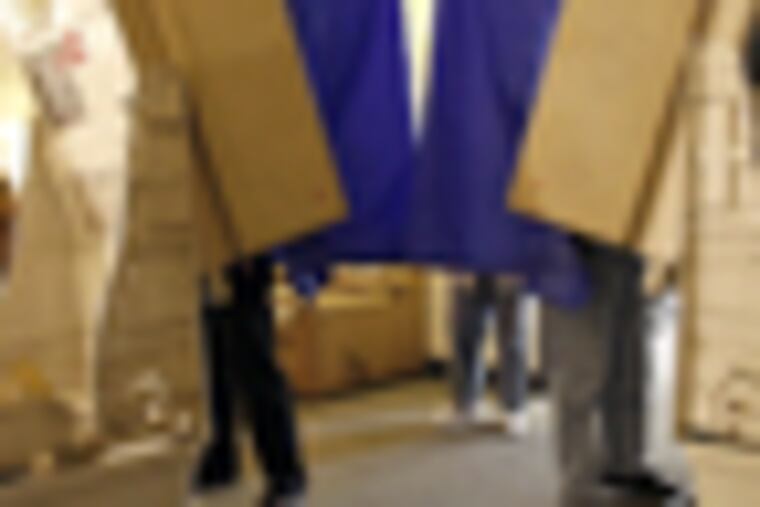Voter ID bill is necessary
Last week, the Philadelphia Bar Association sent a legislative action alert e-mail urging members to immediately call their legislators to oppose the voter ID bill that was being considered in the state Senate.

Last week, the Philadelphia Bar Association sent a legislative action alert e-mail urging members to immediately call their legislators to oppose the voter ID bill that was being considered in the state Senate. The e-mail included a convenient "quickly generate a letter now" button. With the click of a mouse, a form letter full of Democratic talking points against voter ID and sprinkled with references to Philadelphia as the birthplace of democracy was spewed out.
As a member of the association, I was among the recipients of this e-mail with the alarmist title "Your Action Needed Now to Preserve the Right to Vote." However, as a lawyer with 10 years of experience representing voters and candidates in Philadelphia Election Court, I wholeheartedly support voter ID laws.
Every primary and Election Day, poll watchers, voters, and campaigns come to Election Court with complaints of irregularities in polling places, including more than one voter entering the polling booth; unknown and unidentified people milling around and entering polling booths; refusal to allow poll watchers and inspectors into polling places; and voters entering polling booths without signing in. Hundreds of cases are common in presidential election cycles. I am sometimes able to obtain a cease-and-desist order or some other remedy from the court, but often the damage at the polling place has already occurred. We need preventive measures. The groundwork for identification issues can often be laid long before Election Day.
Consider the mystery of the two Joes: Joseph Cheeseborough and Joseph Cheeseboro, both of whom have regularly voted in the City of Brotherly Love. At a recent meeting of the city commissioners, who oversee elections, the unusual names caught the eye of an enterprising activist who visited the South Philly addresses of the two Joes. One was a vacant lot and the other a convenience store. Obviously, we cannot check every address on voter registration cards before an election. However, a voter ID law such as the one the state Senate passed Wednesday would force the mysterious Joes to produce a valid ID before voting.
The mission of the Philadelphia Bar Association is "to serve the profession and the public by promoting justice, professional excellence, and respect for the rule of law." This voter ID bill would promote justice by preventing fraud, ensuring integrity, and respecting election laws. It would prevent legitimate Pennsylvania voters from being disenfranchised by fraudulent votes.
Yet the Bar Association says voter fraud is not a problem, and that requiring ID at the polls is not only unreasonable, but, judging by the overwrought e-mail, practically un-American. As a member, I have to wonder whether the goal is justice and excellence or promoting a leftist agenda.
Voter ID is common sense. Has the association forgotten the case of Jemar Barksdale, the local ACORN employee who pleaded guilty in a voter-registration fraud case in 2008? He was one of many prosecuted for election fraud that year.
The arguments against voter ID don't hold up.
Ninety-nine percent of Pennsylvanians already have ID that would suffice as voter identification, according to Carol Aichele, secretary of the commonwealth. Free ID cards would be available to the rest. Eighty-six percent of Pennsylvanians who responded supported voter ID in a June poll conducted by KQV Radio/Pittsburgh Tribune-Review. The U.S. Supreme Court has upheld the constitutionality of voter ID. A University of Delaware study showed voter ID laws did not diminish turnout, even across racial, ethnic, and socio-economic lines.
With widespread public support for the bill, the need to protect our elections from fraud, and no indication that eligible voters would be disenfranchised, voter ID is something the Philadelphia Bar Association should support. At the very least, the nation's oldest organization of lawyers should recognize that its membership is not an echo chamber of liberal Democratic hyperbole.